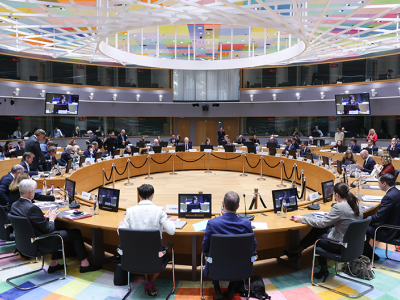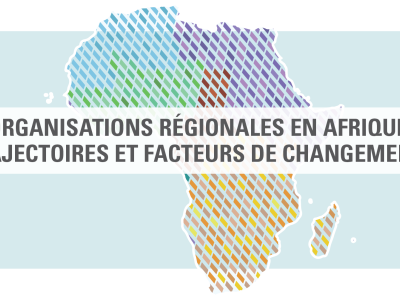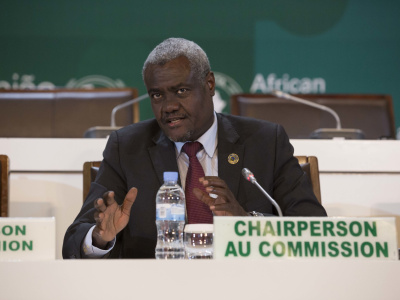Dear EU leaders,
When I was based in Brussels as Chief Representative of JICA to the EU, I regularly visited the EU Public Information Centre located next to the ECDPM office. One day I picked up a pamphlet that opened with the paragraph, “After decades of war that cost millions of lives, the foundation of the European Union (EU) marked the beginning of a new era where European countries solve their problems by talking, not by fighting.” This struck me very deeply.
Indeed, EU member states have never fought a war among themselves since the end of World WarⅡ. Some people mock the EU as a talking shop. What’s wrong with that? The most dangerous thing is when countries stop talking. History tells us that it’s time for a war. Were we in the Middle Ages today, British and Continental Europeans might well fight another Guerre de Cent Ans over Brexit. Thank you EU for talking and talking.
The next question is, “talking to who?” Any organisation is susceptible to two kinds of pressures: pressure from the inside and pressure from the outside. From within, the EU is experiencing a huge surge in pressure from member states, from industries, from bankers, investors, pensioners, unemployed youth and citizens. They clamour for the EU to take more action, to display more leadership, for more democracy, transparency, or whatever they are unhappy about. I think internal pressure generally weakens an organisation, more than external pressure. Internal pressure tends to provoke an attitude of simply catering to members’ concerns, to placate them, without considering long-term ramifications and inconsistencies.
Growing populism and populistic policies emerging in Europe is a case in point. It shows us how internal pressure can disrupt the governance of an organisation. This is happening in the EU at present. External pressure, in contrast, tends to strengthen the cohesiveness of members, because they instinctively move to protect their organisation.
So my suggestion is that the EU should focus more on the external pressure and try to solve it. While the world becomes more and more inward looking, with the emergence and re-emergence of populism, nationalism, xenophobia and even anti-Semitism, in many parts of Europe and America, the threats we face, such as climate change, terrorism, pandemics and cyber-crime, are more and more borderless and global, ironically. To address such global threats, the EU must be more cohesive and united in its policies and external actions. The EU needs to talk more to those outside the Union sphere. Before doing so, member states must coordinate their policies and priorities. Among the member states this will help rebuild trust, which has been seriously impaired during the lengthy internal disputes and confrontations over issues ranging from fiscal austerity to democracy, immigration and Brexit.
The EU has had, until now, a wonderful instrument called Global Europe that third countries and international organisations do not possess. It is a budget heading with €2.3 billion earmarked for development assistance, humanitarian aid, peace and security, climate change and other international issues happening in the world outside the EU. I am curious to see what will happen to this instrument in the next long-term budget.
The EU was a role model in discourses on effectiveness and coordination of development assistance, which was my previous profession. Development assistance is a typical area of shared competence in which the EU and member states can implement programmes in parallel. But in the interest of the partner countries that receive aid from both the EU and its member states, the EU has worked hard in the past decade to coordinate its aid with that of member states through skilfully crafted coordination tools like joint programming, blending of development finance and delegated cooperation.
It is easier to coordinate member states on external action than on internal issues, because conflicts of interest between member states are less likely to occur there than on domestic issues. No member states oppose giving aid to poor countries. No member states are complacent about climate change. No member states welcome terrorism or pandemics.
Therefore, I strongly suggest that in these times of internal disruption, the EU look more vigorously towards the third world. Japan is an ideal partner to work with, if the EU wishes to become more global. The Japan-EU Strategic Partnership Agreement was concluded in July 2018. Now we have a legally binding platform to discuss and take joint Japan-EU action spanning various pressing issues.
Hey Europeans (hopefully including Brits), it’s time to put quarrels about internal issues to rest and talk to people outside! Japan and the world are counting on you.
About the author
Aiichiro Yamamoto
Special Assistant to the President
Japan International Cooperation Center (JICE)
Read the full magazine issue









